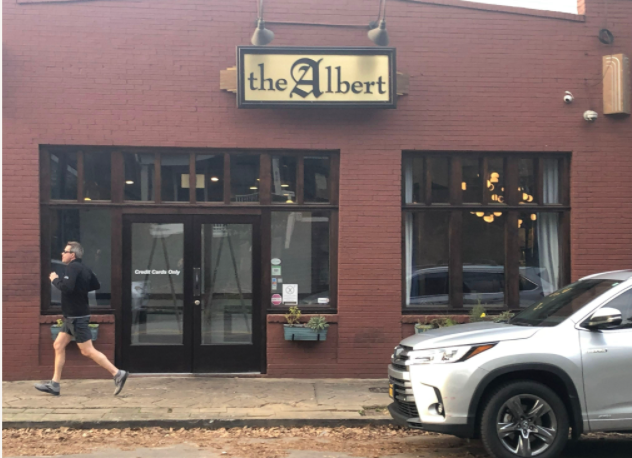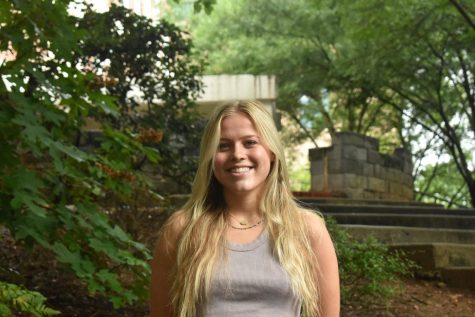Restaurant closures rise as Omicron surges
Restaurants like the Albert have taken a hard hit because of Covid-19’s new variant, Omicron.
February 10, 2022
As the newest Covid-19 variant, Omicron, has ravaged through social gatherings, sports and events, the restaurant industry has taken a hit. Several Atlanta restaurants have struggled to maintain staff members and customers, with many having to temporarily close due to problems caused by Omicron.
Restaurants are familiar with the challenges caused by Covid, having to implement precautionary measures since its first outbreak in March 2020. One restaurant, Manuel’s Tavern, was on the verge of completely closing until it was saved by the surrounding community in the early months of 2021.
“To have people step up to save us was really amazing and humbling,” Manuel’s Tavern owner Brian Maloof said. “It added a new level of understanding to what our place meant to the community to me.”
However, even after the community raised almost $200,000 for the historic tavern, Maloof says it is in a similar situation again.
“We have struggled throughout this whole [pandemic],” Maloof said. “Things were looking really good for us going into our busiest season, our holiday season. Then, Omicron came, and everything went away. We’re not as desperate as we were this time last year, but we’re not far from it.”
Buckhead’s The Palm is no exception to Covid-19’s impact on customer presence.
“We’re dead right now,” waiter Jimmy Logan, who has worked at the restaurant for 28 years, said. “Me and [another waiter] work Tuesday, Wednesday, Thursday, and we’re the only two people working. So, business has been bad.”
A prominent issue restaurants have faced during the pandemic is an unpredictable influx of staff. Midtown junior Albert Landau, for whom family eatery The Albert restaurant is named for, said that after a bartender tested positive for Covid-19 in December of 2021, the restaurant closed briefly.
“Throughout all of Covid, we had to continually play it by ear when it came to shutting down,” Landau said. “Especially with staffing, staffing during Covid when you’re a restaurant is next to impossible because a lot of people, whether it be bartenders, waiters, servers or cooks, decided to leave the industry and find more stable job opportunities.”
Logan said even loyal staff members left the industry during the pandemic.
“I’ve been with The Palm 28 years,” Logan said. “We’ve had many staff members who had been here for a long time, like our head chef had been here 27 years, and our old general manager had been with us for about 17 years;now, they’re both out of the business.”
Junior Elena D’Agostino, a frequent customer of both The Albert and Manuel’s Tavern, has noticed staff shortages in the restaurants.
“I don’t know if I’ve noticed fewer people, but I’ve definitely noticed less staff,” D’Agostino said. “I feel like most of the restaurants I go to, if not all of them, are understaffed. It’s definitely been like that since the start of Covid, but especially right now with Omicron.”
In The Albert’s case, Covid-19 did offer some positives and has allowed the restaurant room for growth.
“I think [Covid-19] overall has been a good thing because the government was very kind to us during Covid-19, especially with zoning laws for our new patio area,” Landau said. “The PPP [The Paycheck Protection Program] loans were a godsend and allowed us to improve what we had, like with our dining room renovations.”
However, Manuel’s Tavern did not receive the same type of financial aid support and struggled to receive government funding.
“We had applied for and submitted the restaurant revitalization fund,” Maloof said. “I qualified, as the sole owner and as a veteran, for the preferred group consideration for that funding. But, we did not obtain the restaurant revitalization act and that really devastated us because we needed it.”
Many restaurants have struggled since the beginning of Covid, and the Omicron variant has plummeted some restaurants even further.
“We’ve 100 percent declined since Covid first broke out two years ago,” Logan said. “I used to make $1,600 to $1,800 a week working 25 hours, and now I’m making nowhere near that right now. It’s crazy.”







